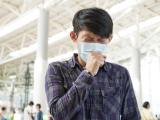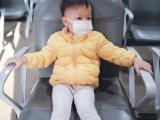Sep 10, 2003 (CIDRAP News) – The World Health Organization (WHO), while not dismissing the report of a SARS (severe acute respiratory syndrome) case in Singapore, said today the case is not a major concern.
"The Singapore case is mild, isolated and has not produced secondary cases, and therefore is not regarded as a public health concern," the agency said. The statement added that Singapore is "a safe destination for travelers, and travelers from Singapore pose no risk to other countries. This event is not an international public health concern."
However, the agency also said, "Singapore has a laboratory-confirmed case of SARS coronavirus (CoV) infection." The statement did not comment on whether the case meets the WHO clinical case definition. In announcing the case yesterday, the Singapore Ministry of Health said it had been told by WHO that the case didn't meet the WHO's latest case definition for use in the post-outbreak era.
The Singapore case is apparently the world's first since WHO declared the disease contained in early July. The patient is a 27-year-old man who works on West Nile virus in a laboratory at the National University of Singapore, according to the Ministry of Health. The ministry said yesterday that a serology test and two successive polymerase chain reaction (PCR) tests for the SARS coronavirus were positive. All the tests were conducted by Singapore laboratories.
The US Centers for Disease Control and Prevention (CDC) today confirmed reports that it would be testing samples from the patient. Samples were expected to arrive as early as today, CDC spokesman Llelwyn Grant told CIDRAP News. He was unsure how long the testing would take.
The WHO's latest SARS case definitions were published Aug 14 in a statement about management of SARS in the post-outbreak period. The statement defines a clinical case as featuring fever accompanied by one or more symptoms of lower respiratory illness (cough, shortness of breath) and radiographic signs consistent with pneumonia or respiratory distress syndrome—all in the absence of another suitable diagnosis. The Singapore patient, who is now described as well, had a fever and cough but also had three normal chest x-rays, according to Singapore officials.
The WHO's laboratory case definition of SARS describes a person who has clinical signs of the illness plus certain lab findings, such as positive PCR tests on two different clinical specimens or on two occasions. The definition appears to disqualify cases that don't first meet the clinical case definition.
How the Singapore man contracted the virus remained unclear. News services today quoted a Singapore official as saying the man might have contracted the virus when he visited another lab Aug 23. The Ministry of Health statement said the patient had visited the Singapore Environmental Health Institute's (EHI's) lab Aug 23. But the Singapore National Environment Agency (NEA), which runs that lab, issued a statement yesterday that that was unlikely.
The NEA said the man was not doing any SARS research. "The last occasion EHI worked with the SARS virus prior to the student's visit on 23 August was on 17 August," the statement added. "It is unlikely if there was a fugitive SARS virus on 17 August that it would have survived for six days to infect the student." The man reportedly became ill Aug 26.
Today's WHO statement praised Singapore's public health officials "for the openness with which they have responded to this event and the rapid precautions taken to contain a possible threat."
See also:
WHO statement on Singapore case
http://www.who.int/csr/don/2003_09_10/en/
Aug 14 WHO statement on public health management of SARS in post-outbreak period
http://www.who.int/csr/sars/postoutbreak/en/



















